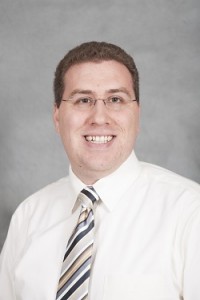2018 School Spending Survey Report
Academic Movers 2014: In Depth with Vincent Scalfani
In the latest in our series of interviews with 2014’s Library Journal Movers & Shakers from academic backgrounds, sponsored by SAGE, we talk to University of Alabama (UA) librarian Vincent Scalfani. With a doctorate in chemistry from the University of Colorado, Scalfani now serves as the Science and Engineering librarian at UA, where he oversees programs like the university’s 3-D printing studio, while also teaching classes in the chemistry department to help graduate students better understand the research tools available to them, as well as how to more effectively communicate their work in journal articles and presentations.
 In the latest in our series of interviews with 2014’s Library Journal Movers & Shakers from academic backgrounds, sponsored by SAGE, we talk to University of Alabama (UA) librarian Vincent Scalfani. With a doctorate in chemistry from Colorado State University, Scalfani now serves as the Science and Engineering librarian at UA, where he oversees programs like the university’s 3-D printing studio, while also teaching classes in the chemistry department to help graduate students better understand the research tools available to them, as well as how to more effectively communicate their work in journal articles and presentations. Your PhD is in chemistry—what attracted you to librarianship? I always loved the library research end of things, reading literature and putting together a story. I had worked in the library as an undergrad and really liked the atmosphere, and toward the end of my PhD, I decided that things like writing and reading papers and teaching were what really interested me. Is there that much difference between the lab and the library? Most people have this idea in their heads of scientists and chemists working in the lab all day long, and that’s not really accurate. About half the work most scientists do is library stuff, reading papers, looking at citations, that sort of thing. I‘ve never viewed moving to the library as leaving my path in the science world, just as putting a focus on the other half of it. Describe a day in your life at the University of Alabama. Most days, I start off preparing a lesson on a database or a new research workshop, and help some students out with their reference questions. If everything goes well, I’ll also read some academic journals about chemistry and information science. I also try and set aside 30-60 minutes every day to do a little bit of writing. Staying in the academic publishing ecosystem is pretty important to me; one article I co-authored was just published in the Journal of Chemical Education.
In the latest in our series of interviews with 2014’s Library Journal Movers & Shakers from academic backgrounds, sponsored by SAGE, we talk to University of Alabama (UA) librarian Vincent Scalfani. With a doctorate in chemistry from Colorado State University, Scalfani now serves as the Science and Engineering librarian at UA, where he oversees programs like the university’s 3-D printing studio, while also teaching classes in the chemistry department to help graduate students better understand the research tools available to them, as well as how to more effectively communicate their work in journal articles and presentations. Your PhD is in chemistry—what attracted you to librarianship? I always loved the library research end of things, reading literature and putting together a story. I had worked in the library as an undergrad and really liked the atmosphere, and toward the end of my PhD, I decided that things like writing and reading papers and teaching were what really interested me. Is there that much difference between the lab and the library? Most people have this idea in their heads of scientists and chemists working in the lab all day long, and that’s not really accurate. About half the work most scientists do is library stuff, reading papers, looking at citations, that sort of thing. I‘ve never viewed moving to the library as leaving my path in the science world, just as putting a focus on the other half of it. Describe a day in your life at the University of Alabama. Most days, I start off preparing a lesson on a database or a new research workshop, and help some students out with their reference questions. If everything goes well, I’ll also read some academic journals about chemistry and information science. I also try and set aside 30-60 minutes every day to do a little bit of writing. Staying in the academic publishing ecosystem is pretty important to me; one article I co-authored was just published in the Journal of Chemical Education. In this interview series, sponsored by SAGE, LJ goes in depth with this year’s Movers & Shakers from academic libraries, delving into just how and why they pulled off the projects that brought them recognition as innovators, change agents, and more.
RELATED
RECOMMENDED
TECHNOLOGY
ALREADY A SUBSCRIBER? LOG IN
We are currently offering this content for free. Sign up now to activate your personal profile, where you can save articles for future viewing









Add Comment :-
Comment Policy:
Comment should not be empty !!!
Vince L. Harden
This is truly Fantastic, Thank youPosted : Dec 12, 2014 06:11